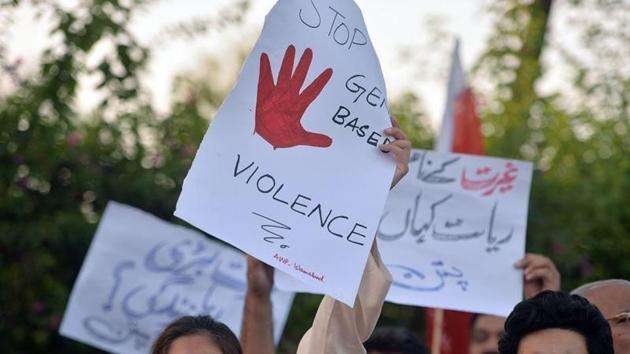The dark reality of honor-based killings continues to cast a shadow over the lives of countless families across Pakistan. In yet another tragic incident, this time in the Kotkay area of Lower Dir, the promise of justice is silenced by a brutal act of violence that has left a family shattered.
Nooruddin, a 35-year-old man, was returning home with his wife and children when tragedy struck. As he drove through the Bandagai area, his vehicle was deliberately stopped—rocks were placed in his path, ensuring he had no escape. Before he could even comprehend what was happening, gunfire rang out, taking his life instantly. His children, who had been with him, were thrown into chaos. One of his daughters was caught in the line of fire, her innocent life now forever scarred by the tragedy. But it didn’t end there. The perpetrators, identified as Manawar Khan and Daud Khan, didn’t stop at Nooruddin. In their callousness, they proceeded to their home—only 100 meters away—where they killed Nahida Bibi, their sister-in-law, with the same ruthless disregard for human life.
Their justification for this carnage? A baseless accusation of an illicit relationship—a mere suspicion that was enough to condemn three lives. These senseless killings, cloaked in the guise of “family honor,” have left behind not only bloodshed but a grieving family, their lives torn apart by unfounded allegations.
Local police, led by Noor Muhammad, confirmed the incident, but the suspects remain at large. The fear of retribution and the stigma attached to speaking out mean that justice is often delayed or never delivered at all.
The brutal reality of these killings is that they are based on flimsy accusations, often driven by suspicion rather than solid evidence. This gives perpetrators the freedom to act without fear of accountability. In the deeply conservative tribal regions of Khyber Pakhtunkhwa, where traditional values dominate, even the slightest perceived dishonor—such as a woman’s relationship that falls outside the boundaries of what is socially accepted—can lead to death. Both the man and the woman are often punished, not for any crime they have committed, but for simply existing outside the strict norms imposed by society.
Human Rights Commission of Pakistan (HRCP) has long highlighted the gravity of honor killings in the country. While the highest number of cases is reported from Sindh and Punjab, Khyber Pakhtunkhwa and Balochistan are also significantly affected. Between January and November 2024 alone, 346 people lost their lives to such violence. And the trend shows no sign of slowing down: 490 cases in 2023 and 590 in 2022.
Imran Takkar, a social activist from Khyber Pakhtunkhwa, voiced his anguish over the situation: “Abuse and violence against women and children stem from deeply ingrained negative social attitudes. Tackling this issue requires urgent awareness, rooted not just in religious values, but also in the Constitution and existing laws. No religion, society, or legal system justifies such violence.”
Takkar’s plea for coordinated action resonates deeply. The fight against honor killings demands more than just rhetoric—it requires a collective effort from the government, the legal system, and society as a whole. The victims need not only justice but also protection and support. Without political will and a transparent, effective human rights framework, this brutal practice will continue to destroy lives, leaving a trail of devastation that echoes through generations.
Nooruddin, Nahida, and the countless others who have lost their lives in the name of so-called “honor” deserve more than just condolences—they deserve action, and they deserve change. It’s time for this violence to end.
